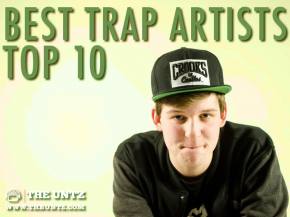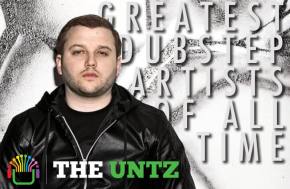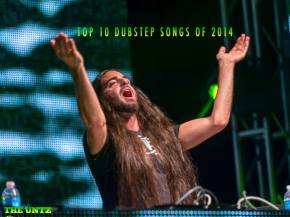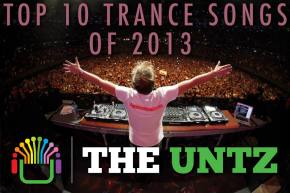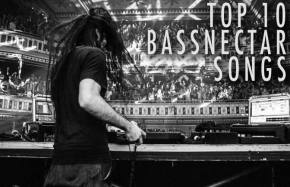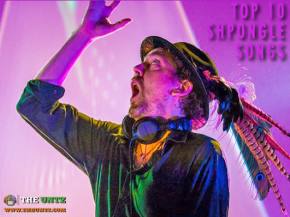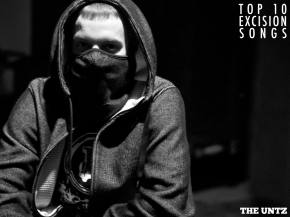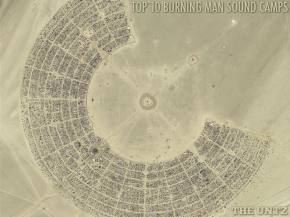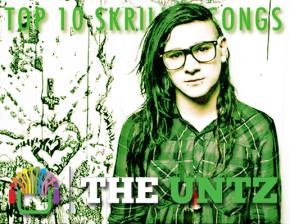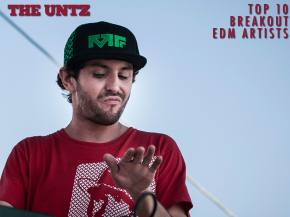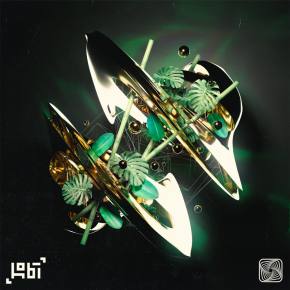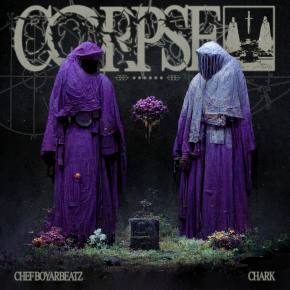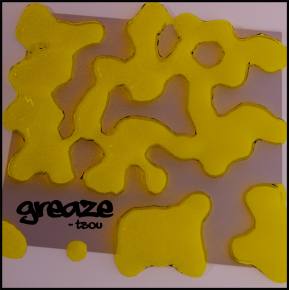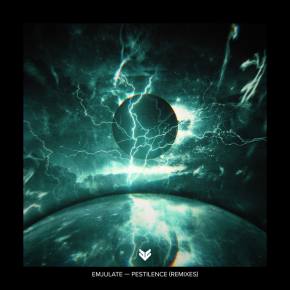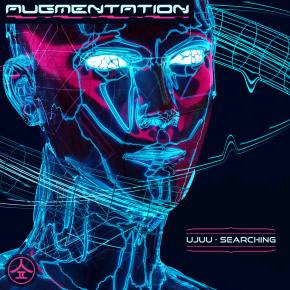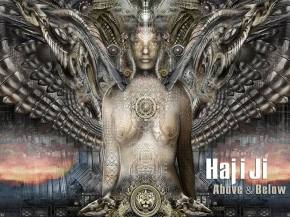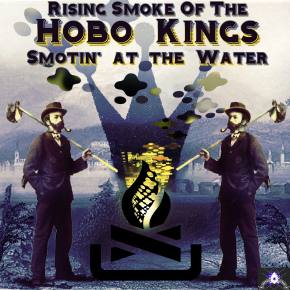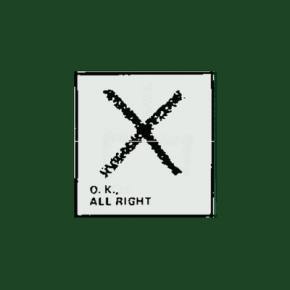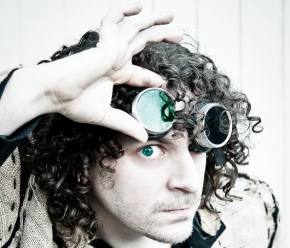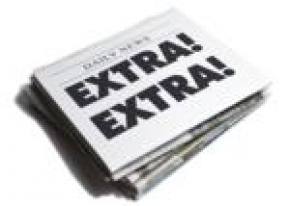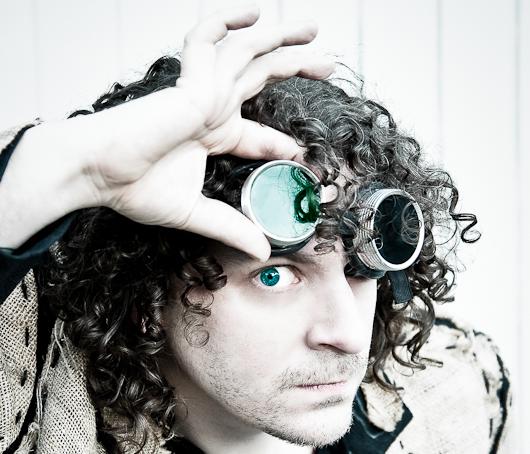BY NATTY MORRISON
 Jon Margulies is the producer/DJ/guitarist and overall mastermind behind Hobotech. Based in New York City, Margulies has made a name for himself combining dusty, bluesy vocal samples with funky, tech-heavy beats, performing in high visibility gigs like Coachella and Burning Man. He’s also the author of Ableton Live Power! and the co-author of Your Ableton Live Studio, generally considered to be bibles on the subject of electronic music production. In addition, he teaches at the revolutionary school Dubspot as well as New York University. On the eve of a performance in Lafayette, Indiana, I sat down with Margulies to meet the man behind the bindle.
Jon Margulies is the producer/DJ/guitarist and overall mastermind behind Hobotech. Based in New York City, Margulies has made a name for himself combining dusty, bluesy vocal samples with funky, tech-heavy beats, performing in high visibility gigs like Coachella and Burning Man. He’s also the author of Ableton Live Power! and the co-author of Your Ableton Live Studio, generally considered to be bibles on the subject of electronic music production. In addition, he teaches at the revolutionary school Dubspot as well as New York University. On the eve of a performance in Lafayette, Indiana, I sat down with Margulies to meet the man behind the bindle.
What was the first instrument you ever played? Did you pick it up quickly or did it take a while?
I started technically on the baritone guitar, but my hands weren’t quite big enough. I studied jazz and went to the jazz program when I went to school.
Who has played the most integral part in your love of music?
I definitely give my brother a lot of credit. You know, when I was growing up I had four older siblings who were all a minimum of 15 years older than me so the house was just full of this crazy aggregate record collection of things people had left behind. But also I sang in the choir at the cathedral St. John the Divine. The choirmaster there was this character Paul Halley also a composer and keyboardist in the Paul Winters Group the proto-new age group. I started to get really interested in composition and he picked up on that. He was really willing to engage.
What was your first encounter with electronic music?
It’s funny, I grew up in New York City and I did - I started going to clubs to some extent when I was underage. I always thought electronic music was just horrible New York City club music, which, to an extent a lot of New York City club music is still pretty horrible [laughs]. That was how I always thought of it, but after years of being, I ended up getting a little burnt out on the new York jazz scene, everyone was trying to be the best player of 1967…There was a lot of looking backwards.
I know what happened is I found my way into (London-based indie-record label) Ninja Tune… Amon Tobin. So a few things that I found made me like, “Oh shit this is where the really pioneering spirit of jazz that dragged me into it has gone.” That’s what pulled me into that world.
How would you describe your sound? How has it evolved over the years?
When I started playing out with Ableton, it was definitely always a really strong tech-house sound. But with Hobotech all the beats were coming out of a really minimal techno sound, because I realized there was all this great stuff that kind of had this big hole in the middle and of course it was totally antithetical to that genre, but I was like, “I’m gonna take this hole and put vocal in it” and all this other anachronistic stuff. Then really over the last six months it’s exploded into omni-tempo craziness. People have really picked up on it on the west coast because they hear it as this extension of this already existent Balkan or Gypsy or World style, all of these styles of electronic music that have some kind of organic roots in them. I’ve become close with some people out on that coast and I’ve been really inspired by a lot of the music out there.
What was your inspiration for the music of Hobotech?
Truth be told it fully started out as a joke. It started as me and a couple people like riffing around a campfire about wanting to create the most anti-New York club scene genre of music possible, and we were like “We’re going to start this revolution where kids are like ‘Yeah it’s cool to live down by the railroad tracks and eat beans out of a can.’” The ultimate “Fuck you” to bottle service culture.
After laughing hysterically about it for a while, it took almost another year, and then one day I was like, “We can actually make this music.” What I decided to do was rather than get caught up with the production side of things right away, I decided I would just get a bunch of new tracks and focus on the cutting up of the old time music. I sampled me playing acoustic guitar; me playing spoons. I cut up some Tom Waits; I found this great John Lee Hooker tune.
When I was learning to play guitar, and we were all exposed to a lot of folk and a lot of blues – that was an influence from my older brother – and I realized I had a much deeper connection to a lot of that music than I had thought. And it just sort of happened, it just came together and I thought wow, this sounds pretty good. So I didn’t know if it was going to work.
Was it difficult to find the samples?
Well, at this point, digging has never really been easier. Among other things I have a subscription to eMusic, which, for catalogue stuff, is sick! Sometimes it’s being super inspired by a source recording and building a track around that, so I have this vocabulary of vocals and things that I’m using. And what I try to do is evolve that side of the set more slowly so people who know my mix from the summer will hear tonight a bunch of vocals and things that they recognize but in totally different places in the set. That’s just part of the fun in a live show.
Do the samples dictate the music? Or do they just naturally fit into the scheme of what you would already be doing?
I think the answer to that is “both.” I still have experiences of building something around the sample. But then another thing I do is even when I make my own tracks I almost still approach it as a mash-up, in other words I make a new beat or a new track based on something that I’m feeling, but 50% into it I’ll start messing around in my library of old music to see if I find something that fits into it and then I just lay it in to see how it changes it.
Do you feel you’ve stumbled upon a new genre of electronic music?
By no means am I the first person to sample blues or any number of other things, but I think the thing that’s different about it is that it’s trying to be pan-American, because you definitely have things that are focused on jazz, or focused on blues or gospel. But it’s never tended to include Ozark mountain music and other kinds of folk and Americana. When you put it all together I feel the cumulative effect of it is something real particular.
As someone who many would consider to be an authority on electronic music, what’s your take on the current state of the field? Is it on an upswing?
I’m not a great authority. I’m not a master of trends. That’s why I had to go invent my own genre. But I guess … [long pause] I love like there’s just “bass music.” It’s so general, but it does have a cultural meaning. It does suggest a slightly more anything goes approach to genres where people really want to hear you mix it up. And people really want to hear you play stuff that’s not like easy to dance to necessarily. But the funny thing is you can get on that side of the scene if you play anything that sounds like dance music or sounds like techno a lot of folks are going to be like “Meh.” And ideally I’m happiest when I’m playing a show and I’m like “Anything.”
Do you feel electronic music is starting to make headway in the realm of the mainstream?
Electronic music has just repeatedly proved itself a very hard culture to comodify. I like that there’s a very organic community support for people doing it, and as so many artists have figured out again and again you can make a living going out and touring and bringing music to people if there’s a vibrant community of people who are really into it. You don’t need to be mainstream. And so many of the paths that may lead to you getting incredibly rich, also very often have led to people getting dropped and burnt out and in a mountain of debt. I love building something organically. It doesn’t have to be big, it just has to be big enough.
Tags: LivetronicaTechno


